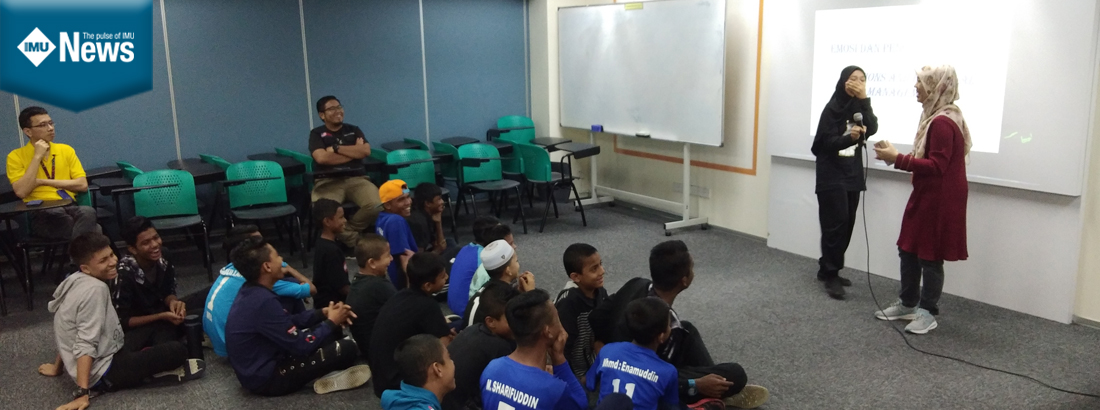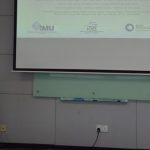23 November 2019 – On a lovely Saturday morning, a group of 28 students (ages :10-14 years old) from the Rohingya Community School (RCS) congregated at International Medical University’s (IMU) campus in Bukit Jalil to take part in an event organised by the University’s Academic Services Department. The ‘Rohingya Refugees Enrichment Project’ was initiated by the Academic Services Department and led by Edward Lim, a staff from this Department. The project team comprises of 15 members which includes both academic and non-Academic staff of IMU. The Rohingya community is a Muslim ethnic minority group who are fleeing persecution from Myanmar’s western Rakhine State, furling from a historic migration crisis and due to that, they have experienced hardship and difficulties that is hard for us to imagine. To tackle some of those issues, the Department came up with the idea of having this project in order to cultivate and educate the Rohingya children in terms of handling their emotional needs as well as to learn a few new skill sets that might be beneficial in their daily life. 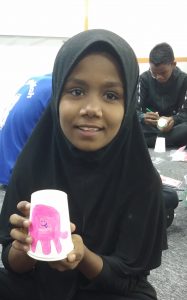 This project is mainly focussed on educating the children to identify their basic emotional feelings. In collaboration with Psychology Department, Dr Shamala organised a whole lot of amazing activities. The children were given a set of pre-test questions at the beginning of the programme in order to assess the children’s knowledge of emotion and emotional management. Not forgetting how the ice-breaking session played a role in getting to know more about the children and to loosen up their shyness (and it’s definitely working!).
This project is mainly focussed on educating the children to identify their basic emotional feelings. In collaboration with Psychology Department, Dr Shamala organised a whole lot of amazing activities. The children were given a set of pre-test questions at the beginning of the programme in order to assess the children’s knowledge of emotion and emotional management. Not forgetting how the ice-breaking session played a role in getting to know more about the children and to loosen up their shyness (and it’s definitely working!). 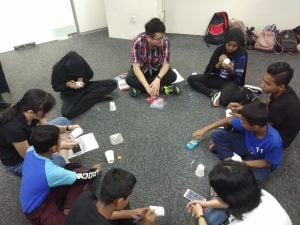 The other activity “Learning the Types of Emotions Through Artworks and Games” started after they are placed into groups. The artwork and games that were prepared for the children such as Charades and Paper cups emotion integrated their creativity into the artwork and the learning of the different types of emotion. Through this programme, it teaches how the children can express their psychological distress by suggesting effective clinical approaches, including teaching them skills such as relaxation and breathing exercises, how the brain controls the emotions and actions encouraging them to share their stories. “Having somebody bear witness to your story is very powerful and healing.”
The other activity “Learning the Types of Emotions Through Artworks and Games” started after they are placed into groups. The artwork and games that were prepared for the children such as Charades and Paper cups emotion integrated their creativity into the artwork and the learning of the different types of emotion. Through this programme, it teaches how the children can express their psychological distress by suggesting effective clinical approaches, including teaching them skills such as relaxation and breathing exercises, how the brain controls the emotions and actions encouraging them to share their stories. “Having somebody bear witness to your story is very powerful and healing.”
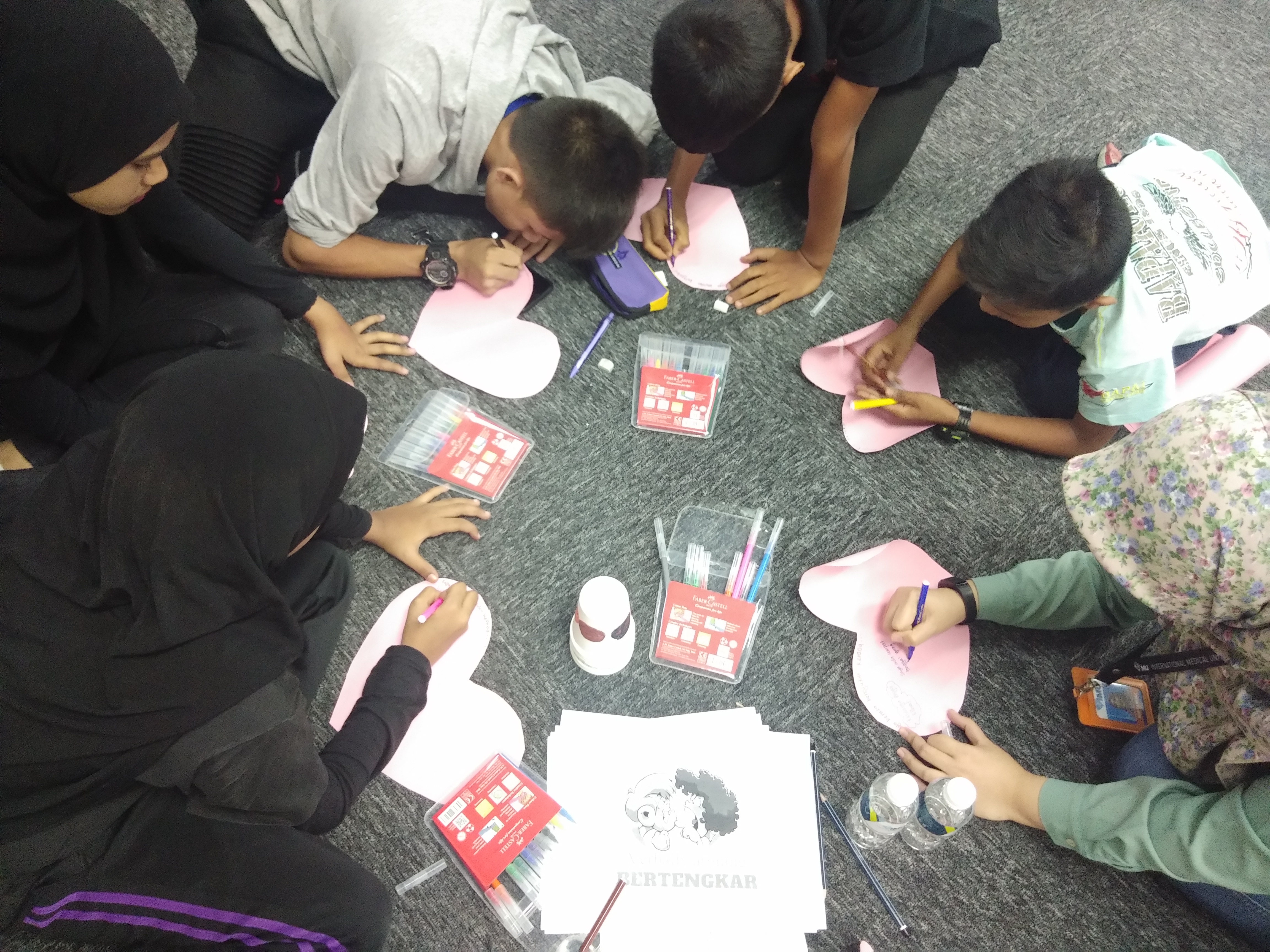
Commenting on the project which is conducted in collaboration with Psychology Department, Dr. Shamala Ramasamy, Head of Psychology Department, said- “I would like to thank the entire team for being excellent facilitators throughout the activities. Everyone was engaged and the children were so disciplined and well mannered. I could observe the children’s appreciation for conducting this emotional management project.”
Representing RCS at the event, Fattah said, “I represent the RCS and was initially approached by Edward to conduct this project at IMU and I was very thrilled as we previously had no such activities given to these students. I believe all the student are having a very valuable time at IMU and I do hope that we can continue to collaborate further on helping these students who are obviously not as lucky as we are. Overall, I am very grateful and thankful to the IMU staff for making this project a really meaningful one to all of us.” The volunteers and organising team have learned a lot through this experience, and they are now more eager than ever to organise the next phase of this programme for the refugee children in 2020.




